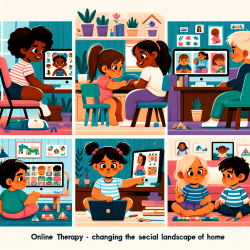Unlocking the Power of Shared Curricula: A Path to Better Outcomes
In the realm of pharmacy education, the development and dissemination of shared curricula have shown promising potential in enhancing teaching effectiveness and reducing faculty burden. The study titled "Lessons Learned from a Shared Curriculum on Tobacco Cessation Using a Mixed-Methods Approach" provides valuable insights into this innovative educational strategy. By synthesizing data from previous studies, the research delineates key recommendations for developing shared curricula, using the Rx for Change program as a successful model.
The Rx for Change Program: A Case Study
The Rx for Change program, a national initiative for tobacco cessation training, serves as a prime example of the benefits of shared curricula. Launched in 1999, it aimed to address the need for enhanced tobacco-cessation training in pharmacy schools. The program's success is attributed to its comprehensive approach, which includes live, in-person training, high-quality materials, and ongoing support for faculty participants.
Key Recommendations for Shared Curricula Development
The research identifies seven core recommendations to guide the development of shared curricula:
- Appeal to Attendees: Ensure the curriculum addresses a significant gap in education and provides value to participants.
- Relate Content to Clinical Practice: Incorporate hands-on activities and real-world applications to enhance learning.
- Deliver Live, In-Person Training: Facilitate immersive learning experiences and networking opportunities.
- Develop High-Quality Materials: Use evidence-based content delivered by experts to ensure credibility and effectiveness.
- Provide Support: Offer resources and tools to assist faculty in implementing the curriculum effectively.
- Meet Accreditation Standards: Align the curriculum with required competencies to facilitate adoption.
- Demonstrate Effectiveness: Evaluate the program's impact on student outcomes and clinical practice.
Future Directions and Implications
For practitioners and educators, these recommendations provide a roadmap for developing and sustaining effective shared curricula. By focusing on practical application, high-quality materials, and ongoing support, educators can enhance the adoption and sustainability of educational programs. Furthermore, the study suggests exploring shared curricula for other health topics, such as opioid dependence and motivational interviewing, to broaden the impact of this educational approach.
In conclusion, the Rx for Change program exemplifies the potential of shared curricula to transform pharmacy education. By implementing the outlined recommendations, educators can create sustainable, impactful programs that improve student outcomes and clinical practice. For those interested in further research, the study encourages exploring additional topics and evaluating the long-term effectiveness of shared curricula.
To read the original research paper, please follow this link: Lessons Learned from a Shared Curriculum on Tobacco Cessation Using a Mixed-Methods Approach.










